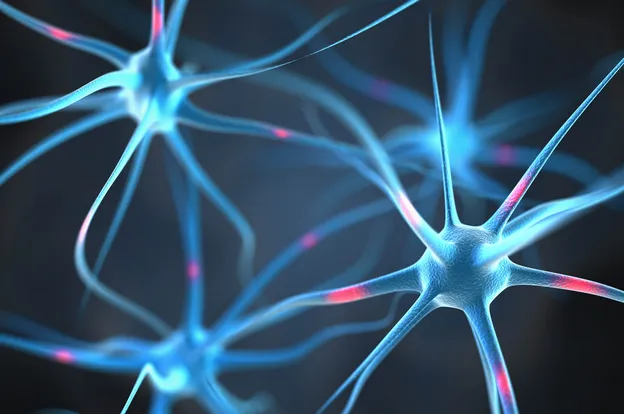Insect Phobias
Object Phobias
Situational Phobias
Social Phobias
Medical Phobias
Environmental Phobias
Specific Object Phobias
Food and Drink Phobias
Uncommon Phobias
Food and Drink Phobias
Technology Phobias
Lifestyle and Daily Activities Phobias
Lungs and Respiratory System
Infections and Diseases
Liver
Blood and Circulatory System
Maternal Health
Endocrine System
Cancer
Doctors Nearby Me
Top Healthcare Professionals
Lab Tests
Health & Medical Days
Calculator
Drlogy Hospital Software
Drlogy Specialty Software
Drlogy Pathology Lab Software
1000+ Pathology Lab Report Format
Drlogy Radiology Software
Drlogy Free Profile Listing
Drlogy Letterhead
Drlogy ICD Codes


Healthcare organization
Cannabis, a plant that has been used for centuries for its medicinal and recreational properties, continues to attract attention due to its complex effects on the human body, particularly the brain and central nervous system. Among the various forms of cannabis consumption, THC gummies have become increasingly popular because they provide an easy, discreet, and controlled way to experience the effects of tetrahydrocannabinol (THC), the primary psychoactive compound in cannabis. To truly understand how cannabis affects the brain and central nervous system, it is essential to explore the underlying biological mechanisms, the role of THC, and how products like THC gummies influence neurological functions.
When cannabis is consumed, the active compounds interact with the body's endocannabinoid system (ECS), a regulatory system vital to maintaining physiological balance or homeostasis. The ECS consists of cannabinoid receptors, endogenous cannabinoids (also known as endocannabinoids), and enzymes responsible for synthesizing and metabolizing these compounds. Two primary receptors, CB1 and CB2, play critical roles in how cannabis influences the brain and nervous system. CB1 receptors are primarily found in the brain and central nervous system, while CB2 receptors are mainly located in the immune system and peripheral tissues.
THC, the most well-known cannabinoid in cannabis, has a high affinity for CB1 receptors. When a person consumes THC gummies, the THC travels through the digestive system and is metabolized in the liver, which converts it into 11-hydroxy-THC. This potent metabolite can cross the blood-brain barrier more easily than THC itself. This process results in a delayed onset of effects compared to inhalation methods, but also a longer-lasting and often more intense psychoactive experience.
Once THC binds to CB1 receptors, it triggers neurological responses in areas related to memory, cognition, motor coordination, and pleasure, such as the hippocampus, cerebral cortex, basal ganglia, and cerebellum. This activation leads to a dopamine release, resulting in feelings of euphoria or a "high.”
While THC can boost mood, it may also impair short-term memory and learning by disrupting the hippocampus. Users may struggle with concentration and recalling recent events, especially at high doses.
THC also affects the cerebellum and basal ganglia, leading to slower reaction times and impaired coordination. This makes activities like driving or operating machinery risky after consuming THC gummies.
THC influences emotional regulation. While low to moderate doses may reduce anxiety and promote relaxation, higher doses can induce anxiety or paranoia in some individuals. These effects vary based on dosage and individual sensitivity.
THC binds to CB2 receptors in the immune system and peripheral tissues, helping reduce inflammation and potentially benefiting those with chronic pain or autoimmune conditions.
By interacting with cannabinoid receptors in the brain and spinal cord, THC alters pain perception, making THC gummies a popular alternative for managing chronic pain conditions like arthritis or fibromyalgia.
THC affects the hypothalamus, which regulates hunger. It stimulates ghrelin release, often resulting in increased appetite (the "munchies"). This can be helpful for patients experiencing appetite loss due to illness.
Unlike THC, CBD does not bind directly to CB1 receptors and does not cause a "high." It provides anti-anxiety, anti-inflammatory, and neuroprotective effects. Combining CBD oil with THC gummies may balance psychoactive effects and enhance therapeutic benefits.
While THC offers benefits, chronic or heavy use, mainly in adolescents, may lead to altered brain development, cognitive decline, and increased risk of mental health issues. Tolerance and withdrawal symptoms can also develop with regular use.
THC gummies are ingested, leading to slower onset but longer-lasting effects (4–8 hours or more). Because they're metabolized into 11-hydroxy-THC, the effects may be more intense than inhaled forms of cannabis.
Due to the delayed and potent effects of edibles, starting with a low dose and waiting before taking more is crucial to avoid overconsumption, especially for beginners.
Cannabis affects the brain and central nervous system mainly through THC's interaction with the ECS. Products like THC gummies provide a modern, potent, and extended experience. As research continues, we'll better understand how cannabis can be used safely and effectively for both recreational and medical purposes.
DOCTOR'S MOST TRUSTED HEALTHCARE PLATFORM
10M+Patients
30000+Doctors
25000+Hospitals/Labs